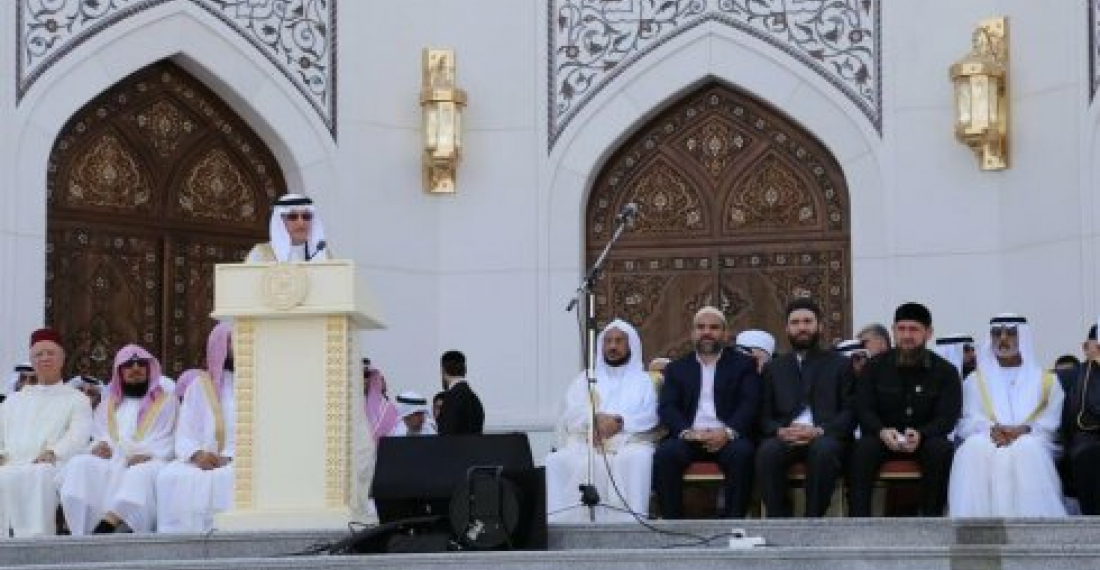The Secretary General of the Organisation for Islamic Co-operation (OIC), Yousef Bin Ahmad Al-Othaimeen was on an official visit in the Caucasus region in the last days, visiting Chechnya and Azerbaijan. The Jeddah based OIC is an umbrella organisation for Muslim countries.It was established in 1969 and today has 57 member states, with a collective population of over 1.9 billion with 53 countries being Muslim-majority countries. The organisation states that it is "the collective voice of the Muslim world" and works to "safeguard and protect the interests of the Muslim world in the spirit of promoting international peace and harmony".
On Saturday (24 August) the OIC Secretary General met in Baku with Azerbaijani president Ilham Aliyev. Azerbaijan is a full member of the OIC.
Prior to his arrival in Baku, al-Othaimeen was in Chechnya where on Thursday (22 August) he attended the official inauguration ceremony of Fakhr Al-Muslimeen (Pride of Muslims) Mosque in the city of Shali. The event was held under the patronage of the Chechen President Ramzan Kadyrov,and was attended by a wide representation of the Muslim community in the North Caucasus.
Al-Othaimeen commended the inauguration of the Mosque, which he said was a representation of Islamic architecture and was built according to the highest architecture standards. The Mosque is on two floors with an indoor capacity of 20.000 worshipers and an outdoor capacity of 100.000 worshipers. It also includes vast yards on its precincts.
source: commonspace.eu
photo: The Secretary General of the Organisation for Islamic Co-operation speaking at the inauguration ceremony of a new mosque in Chechnya on 22 August 2019 (picture courtesy of the OIC press service).






